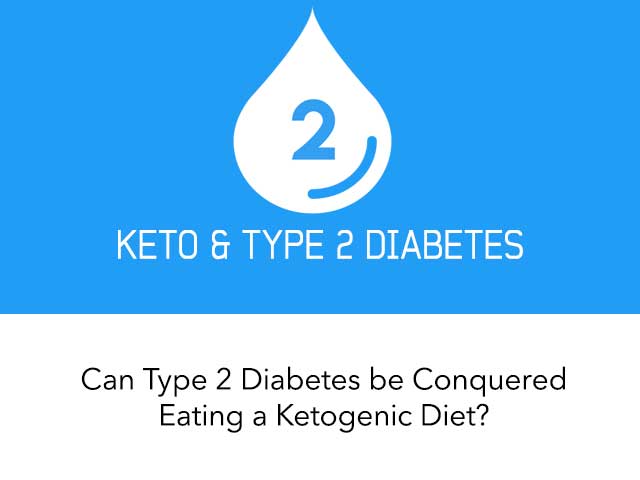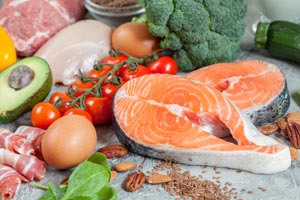
Type 2 Diabetes: A Growing Epidemic
Type 2 Diabetes (T2D) is a chronic metabolic condition that occurs when the body either doesn't produce enough insulin, or it is unable to effectively deliver insulin into cells.
T2D differs from type 1 diabetes in that the body still produces insulin. Because insulin production is defective, blood sugar builds up in the blood causing blood sugar levels to rise.
Achieving and maintaining normal blood sugar (glucose) levels can significantly minimize risk of diabetes associated complications such as diseases of the eye, heart, nerves, kidney, digestion, feet, gums, and blood circulation.
What Are the Risk Factors and Who is Affected by Type 2 Diabetes?
Age, genetics, food choices and environment (activity level, taking medication, etc.) are all factors that can contribute to T2D.
Type 2 diabetes — originally coined adult onset diabetes, and its epidemic, which has plagued us for over thirty-five years — has risen from 108 million in 1980 to 422 million in 2014 (1). Once thought of as an adult disease, type 2 has now expanded to include children.
Type 2 diabetes has affected children at the same rate as type 1 in the United States and is growing in other parts of the world: Canada, Japan, Austria, United Kingdom and Germany ( 2). Japan has seen an approximate fourfold rise in the incidence of type 2 diabetes in 6 to 15 year-olds, and between 8 and 45% of newly presenting children and adolescents in the U.S. have type 2 diabetes (3).
These staggering statistics are not just overwhelming because of the numbers, they are astounding because type 2 diabetes can be avoided and conquered simply with healthy diet and lifestyle choices.

Worldwide trends in diabetes since 1980: a pooled analysis of 751 population-based studies with 4·4 million participants. Image credit: The Lancet
What Are Healthy Blood Sugar Level Ranges?
For those who live with any type of blood sugar disorder (pre-diabetes, diabetes, etc.) the aim is to attain normal fasting blood sugar ranges through diet while minimizing or eliminating diabetes medication that increases the risk of blood sugar fluctuations. The aim is to achieve:
- A1C between 4 to 5.5% (also known as hemoglobin A1c, HbA1c, glycated hemoglobin or glycohemoglobin). A1C tells you your average level of blood sugar over the past 2 to 3 months.
- Blood sugar level below 100 mg/dl (3.6-5.4 mmol/l).
While public associations (American Diabetes Association.) and government agencies (World Health Organization) recommend higher ranges for people with diabetes as shown in the chart below (4), pay attention to the note under the table.
If you follow tables such as the one provided by the National Institute for Clinical Excellence (NICE) below, you may be misled into thinking your blood sugar is in a healthy range if it falls in the pre diabetes range of 100-125 mg/dl.
|
Upon Waking |
Before Meals
(pre prandial) |
90+ Min After Meals
(post prandial) |
| Non-Diabetic |
- |
4 to 5.9 mmol/L |
under 7.8 mmol/L |
| Type 2 Diabetes |
- |
4 to 7 mmol/L |
under 8.5 mmol/L |
| Type 1 Diabetes |
5 to 7 mmol/L |
4 to 7 mmol/L |
5 to 9 mmol/L |
| Children w/ Type 1 Diabetes |
4 to 7 mmol/L |
4 to 7 mmol/L |
5 to 9 mmol/L |
Note: The non-diabetic figures are provided for information but are not part of NICE guidelines.
After meal blood sugar range is especially important because it tells you how much that food or meal contributes to the rise in blood sugar otherwise associated with the risk of diabetes complications. So, eating foods that trigger the least blood sugar spike after consumption are the healthiest choices.
To avoid diabetes complications, maintain blood sugar in the non-diabetic normal range. These government recommendations are too high if your personal goal is to potentially reverse your diabetes and stave off associated complications.
Can a Ketogenic Diet Help Put an End to Type 2 Diabetes?
Available treatment options (diet, exercise, medication, and insulin therapy) help keep blood sugar in range. However, none compare to a ketogenic diet.

The ketogenic diet (maximum of 50 grams of total carbs per day) is by far the best blood sugar management tool because the individual is not consuming sugar, or sugar from the breakdown of the digested carbohydrate, and therefore excess sugar is not circulating in the blood. In essence the underlying cause of high blood sugar is removed. In fact there are many experts that support this ketogenic approach for treating type 2 diabetes ( 5, 6, 7, 8, 9).
The Ketogenic Diet Improves Blood Sugar and Cholesterol
Findings from a one-year randomized controlled study with obese type 2 diabetes volunteers was published in the American Journal of Clinical Nutrition. It compared a < 50 gram carbohydrate, 58% fat diet with a 53% carbohydrate 30% fat diet. Both diets produced weight loss and blood sugar improvements. The ketogenic diet resulted in "greater improvements in the cholesterol, blood sugar stability (vs. fluctuations), and reductions in diabetes medication, supporting its use an effective strategy for the optimization of T2D management" ( 10).
While some may voice concern about the significant drops in blood sugar for those on medication who follow a ketogenic diet, it seems working with a physician to lower and eliminate medication would be wise rather than avoid a natural nutrition plan that can normalize blood sugar levels ( 11, 12).
How Many Carbs per Day?
When following a ketogenic diet, you should stay below 50 grams of total carbs per day. As evidenced in a study comparing a ketogenic diet (KD) consisting of 20 grams of total carbs a day — unlimited amounts of animal foods , i.e., meat, chicken, turkey, other fowl, fish, shellfish and eggs; limited amounts of hard cheese (e.g., cheddar or Swiss, 4 ounces per day), fresh cheese (e.g., cottage or ricotta, 2 ounces per day), 2 cups of salad vegetables and 1 cup of non-starchy vegetables) — with a 55% high carbohydrate but low glycemic index diet (HCLGID).

It seems both had positive effects on blood sugar, yet the KD resulted in significant improvements in hemoglobin A1c and body weight and high-density lipoprotein (HDL) cholesterol as compared to the HCLGID group ( 13).
For type 2 diabetes, what you don't eat is as important as what you choose to eat. While it may be confusing to read information from expert nutrition groups suggesting "Carbohydrates-Part of a Healthful Diabetes Diet" (14), understand that no matter what the portion, by its very nature carbohydrate will raise blood sugar. This is counterproductive to any healthy blood sugar goal.
How Many Carbs per Meal?
Consume foods containing proteins, fats and carbohydrates with 5-15 grams of carbohydrates per meal (non starchy vegetables, fat full dairy products, nuts and seeds). Keep in mind that large amounts of low-carbohydrate foods can spike blood sugar (tomatoes and tomato sauce, winter squash, berries, etc.) just like low amounts of high carbohydrate foods (starchy vegetables, bread, rice, pasta, cereal etc).
Additionally, the diet delivery method (online vs. in person) does not seem to change the ketogenic advantage. Type 2 diabetics improved glycemic control and lost more weight when following an online ketogenic program when compared with a conventional, low-fat diabetes diet online program ( 15).
Do you like this post? Share it with your friends!